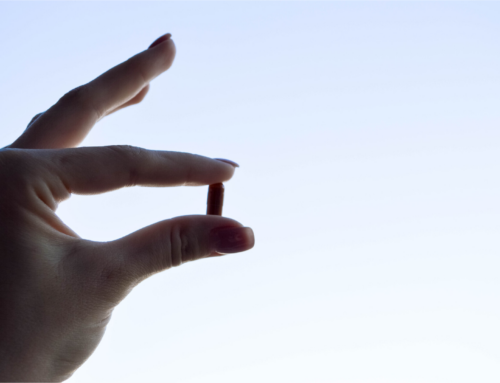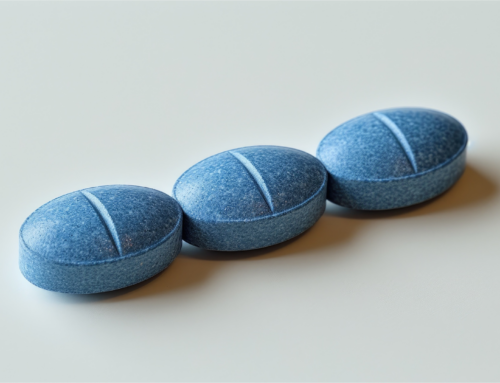Summary
-
Semaglutide is licensed for people suffering from type II diabetes and individuals who are obese or are overweight with one more existing co-morbidity.
-
Semaglutide causes weight loss by suppressing the appetite and this will lead to a caloric reduction, which in itself can cause you to feel tired.
-
The side effects whilst taking semaglutide can also contribute to tiredness. These side effects include nausea, vomiting and diarrhoea.
-
The way you take your semaglutide, whether it is in a pill or injection form can also affect how tired you feel.
What is Semaglutide?
Semaglutide is the active ingredient in the best-selling weight loss drug of all time. The brand names of the medicines include:
-
Ozempic
-
Rybelsus
Semaglutide belongs to a class of drugs called GLP-1 agonists and these were originally used in the treatment of type II diabetes since it could increase the release of insulin from the pancreas. This is why semaglutide is only used to treat the type of diabetes associated with type II diabetes, where there is some residual pancreatic activity. In type I diabetes there is no insulin released from the pancreas and hence semaglutide is not used to treat type I diabetes.
Researchers began to notice that when on semaglutide people began to lose weight. This serendipitous observation then transformed the fate of semaglutide overnight, making it the best-selling weight loss drug. It was found to reduce the appetite of patients taking it and hence due to the caloric reduction they subsequently lost weight.
Why do you feel tired when taking semaglutide?
It was found that people taking semaglutide could lose up to 15% of their bodyweight (Kosiborod MN et al 2023). However, this weight is also dependent on your starting weight, comorbidities, other medicines you may be taking a lifestyle choice.
The reduction in weight is thought to occur by the effect that semaglutide has on your appetite; you basically feel less hungry. If you do not feel hungry then you are less likely to eat and so you will experience weight loss as a consequence of caloric reduction. Hence, because you are consuming less calories the body works to oppose this by slowly down your metabolism and making you feel more sluggish and tired.
You may also be feeling tired because you may not be taking enough B vitamins and other vitamins and minerals that are essential for energy production in the body. Vitamins such as co enzyme Q10 and L carnitine are just two vitamins that can help with energy production in the body.
It is also important to bear in mind that when you stop eating your body will first begin to break down your muscle as opposed to your fat stores. This is why it is important that your diet contains enough protein to prevent you from going into a negative nitrogen balance and encourage your body to burn the fat stores instead of your muscle.
The side effects associated with the gastrointestinal tract, such as nausea, vomiting and diarrhoea can also contribute to your tiredness.
Ozempic Fatigue
Although tiredness is listed as a side effect of Ozempic, it doesn’t seem to be that common. The FDA lists fatigue as one side effect but states that it’s>0.4% of people taking it. However, this relates to the clinical trials which were carried out in type II diabetes, and it is unclear whether this side effect will be present in those using Ozempic solely for weight loss.
It is also not clear it the incidence stated (>0.4%) relates solely to tiredness, since the FDA lists tiredness along with dysgeusia (a taste disorder) and dizziness. So, we don’t know if this is the figure for all three side effects or just one of them. Again, the feeling of fatigue is subjective, that is it is not easy to measure and will be different for each patient, since each will begin with a different baseline. It is also important to bear in mind that the dose of someone of Ozempic will change, with people usually starting on lower doses and building up.
The jury is still out as to why Ozempic may make you feel tired. It has been suggested that this is a side effect the body may experience as it gets used to the new drug. In this case, many people may experience an initial fatigue which gradually subsides as the body becomes accustomed to the drug.
What can you do about Ozempic Fatigue?
-
Get enough sleep.
-
Stay hydrated.
-
Eat a balanced diet and make sure you have enough protein.
-
Regular exercise
-
Take dietary supplements such as B vitamins and Coenzyme Q10.
What to do if you still have Ozempic Fatigue
If you still are suffering from fatigue after trying the above lifestyle changes then it may be worthwhile to try a different dosage form such as tablets or even a compounded oral buccal mucoadhesive tablets. This later product is specifically compounded preparation that makes sure the drugs bypass the intestine and is absorbed into the bloodstream without the need for an injection.
If you are interested in trying a compounded option, please contact APC labs at info@apclabs.co.uk
References:
Kosiborod MN, Bhatta M, Davies M, et al. Semaglutide improves cardiometabolic risk factors in adults with overweight or obesity: 1 and 4 exploratory analyses. Diabetes Obes Metab. 2023 ;25(2) :468-478. Doi :10.1111/dom.14890. https://pubmed.ncbi.nlm.nih.gov/36200477/.
https://www.novo-pi.com/ozempic.pdf

Written by Mr. Shazlee Ashan
BSc Pharmacy, MSc Endocrinology, PgDip Infectious Diseases, Ipresc




